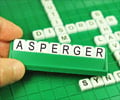Highlights
- Dyslexia results in a learning problem due to difficulty in reading
- Brain adapts more slowly in dyslexic individuals
- Further research could decode the details of brain function in dyslexic individuals
Neuroscientists have suggested a problem in brain adaptation as a mechanism of altered sensory perception in dyslexia. Their research is being published in the Neuron. Dyslexia is a learning disability where the person has a problem with reading. Though the child has normal intelligence, poor grades at school may increase doubts about his/her intelligence. The condition has been showcased in several movies, including the Hindi film, Taare Zameen Par, which have increased awareness about the condition.
Dyslexia is often diagnosed during the schooling years when the child finds it difficult to learn. Adults are also likely to have some traits of dyslexia, which may be either undiagnosed dyslexia during childhood or dyslexia that appears during adulthood for the first time due to conditions like brain injury or dementia.
Scientists from MIT and Boston University have suggested that people with dyslexia have a problem with sensory perception. Normally, when the brain receives sensory input from the surroundings, it adapts itself immediately so that it can process the information and if necessary, cause a response. The process of adaptation to a repeated stimulus like a single consistent voice is almost immediate.
The research team carried out functional magnetic resonance imaging (fMRI) in adults with or without dyslexia as they were listening to a series of words in the same or different voice. The scientists also exposed another set of adults with and without dyslexia to visual stimuli like images of written words, faces, and objects, which were either repeated or different.
The team found that:
- People without dyslexia showed normal adaptation to a consistent voice. The adaptation process was slower in people with dyslexia
- People with dyslexia with better reading skills showed better adaptation to audio stimuli
- The adaptation was also less to visual stimuli in patients with dyslexia, suggesting that the adaptation process throughout the brain may be affected
The researchers confirmed their findings in a study in children between the ages of 6 and 9 years with or without dyslexia, with similar results.
Further research could help to decode the exact mechanism of the brain function in dyslexic individuals and suggest ways to train individuals to overcome their difficulties.
- Tyler K. Perrachione, Stephanie N. Del Tufo, Rebecca Winter, Jack Murtagh, Abigail Cyr, Patricia Chang, Kelly Halverson, Satrajit S. Ghosh, Joanna A. Christodoulou5, John D.E. Gabrieli. 'Dysfunction of Rapid Neural Adaptation in Dyslexia,' Neuron;(2016) DOI: http://dx.doi.org/10.1016/j.neuron.2016.11.020
- Dyslexia Information Page - (https://www.ninds.nih.gov/Disorders/All-Disorders/Dyslexia-Information-Page)














